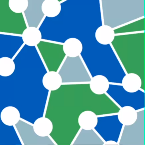Difference between revisions of "Home"
| (280 intermediate revisions by 8 users not shown) | |||
| Line 1: | Line 1: | ||
| − | + | __NOTOC__ | |
| + | <!-- | ||
| + | <sgallery width="700" showinfopane="false" timed="true" delay="4000" showcarousel="false"> | ||
| + | ARACNe_with_t-test_home_gallery.PNG | ||
| + | MarkUs_home_gallery.PNG | ||
| + | Dendrogram_home_gallery.PNG | ||
| + | Volcano_plot_home_gallery.PNG | ||
| + | JMol_viewer_home_gallery.PNG | ||
| + | Skybase_home_gallery.PNG | ||
| + | TF_binding_site_prediction_home_gallery.PNG | ||
| + | Motif_discovery_home_gallery.PNG | ||
| + | BLAST_home_gallery.PNG | ||
| + | CCM_home_gallery.PNG | ||
| + | Gene_Ontology_home_gallery.PNG | ||
| + | </sgallery> | ||
| + | --> | ||
| − | + | [[Image:geworkbench_banner.png]] | |
| − | |||
| − | + | {| class="wikitable" style="background-color:#F8EDD6;" cellpadding="10" width="700px" | |
| + | |colspan="2"| | ||
| + | <h2>Overview</h2> | ||
| + | '''geWorkbench''' (<u>ge</u>nomics <u>Workbench</u>) is a Java-based open-source platform for integrated genomics. Using a component architecture it allows individually developed plug-ins to be configured into complex bioinformatic applications. At present there are more than 70 available [[Plugins|plug-ins]] supporting the visualization and analysis of gene expression and sequence data. Example use cases include: <toggledisplay status="hide"> | ||
| + | * loading data from local or remote data sources. | ||
| + | * visualizing gene expression, molecular interaction networks, protein sequence and protein structure data in a variety of ways. | ||
| + | * providing access to client- and server-side computational analysis tools such as t-test analysis, hierarchical clustering, self organizing maps, regulatory neworks reconstruction, BLAST searches, pattern/motif discovery, etc. | ||
| + | * validating computational hypothesis through the integration of gene and pathway annotation information from curated sources as well as through Gene Ontology enrichment analysis. | ||
| + | <br/> | ||
| + | geWorkbench is the Bioinformatics platform of [http://magnet.c2b2.columbia.edu MAGNet], the '''National Center for the Multi-scale Analysis of Genomic and Cellular Networks''' (one of the [http://www.ncbcs.org 7 National Centers for Biomedial Computing] funded through the [http://nihroadmap.nih.gov/ NIH Common Fund]). | ||
| + | <!-- | ||
| + | In the past, geWorkbench has received support from [https://cabig.nci.nih.gov/ caBIG<sup>®</sup>, NCI's cancer Biomedical Informatics Grid initiative]. | ||
| + | |||
| + | <br/> | ||
| + | End-user and developer support for geWorkbench is provided through the caBIG<sup>®</sup> [https://cabig-kc.nci.nih.gov/Molecular/KC/index.php/Main_Page Molecular Analysis Tools Knowledge Center], a component of the caBIG<sup>®</sup> [https://cabig.nci.nih.gov/esn/ Enterprise Support Network]. | ||
| + | --> | ||
| + | </toggledisplay> | ||
| + | |- | ||
| + | | style="width: 50%; background-color: #F2F8C7;"| | ||
| + | <h2>Quick Start</h2> | ||
| + | Please see the [[QuickStart| Quick Start]] guide to geWorkbench to see how to get started using geWorkbench right away. | ||
| + | | style="width: 50%; background-color: #C7F8CB;"| | ||
| + | <h2>Current Release</h2> | ||
| + | The latest production version of geWorkbench (v2.6.0.3) was released on December 21, 2016. | ||
| + | * [[Release_Descriptions#Brief_overview_of_changes_in_geWorkbench_release_2.6.0|See changes included in latest release]]. | ||
| + | * [[Release_Descriptions|See history of past releases]]. | ||
| + | * [[Download_and_Installation|Download geWorkbench]]. | ||
| + | |||
| + | |- | ||
| + | |style="background-color: #D8FAFA;" colspan="2"| | ||
| + | <h2>Web-enabled Version</h2> | ||
| + | [[GeWorkbench-web/Overview|'''geWorkbench-web''']] provides installation-free access to the geWorkbench plug-ins through a pure browser interface. You can create and account and access the application at: http://geworkbench.c2b2.columbia.edu/geworkbench/. | ||
| + | |} | ||
Latest revision as of 16:47, 2 March 2022
OverviewgeWorkbench (genomics Workbench) is a Java-based open-source platform for integrated genomics. Using a component architecture it allows individually developed plug-ins to be configured into complex bioinformatic applications. At present there are more than 70 available plug-ins supporting the visualization and analysis of gene expression and sequence data. Example use cases include: [show details] | |
Quick StartPlease see the Quick Start guide to geWorkbench to see how to get started using geWorkbench right away. |
Current ReleaseThe latest production version of geWorkbench (v2.6.0.3) was released on December 21, 2016. |
Web-enabled VersiongeWorkbench-web provides installation-free access to the geWorkbench plug-ins through a pure browser interface. You can create and account and access the application at: http://geworkbench.c2b2.columbia.edu/geworkbench/. | |

